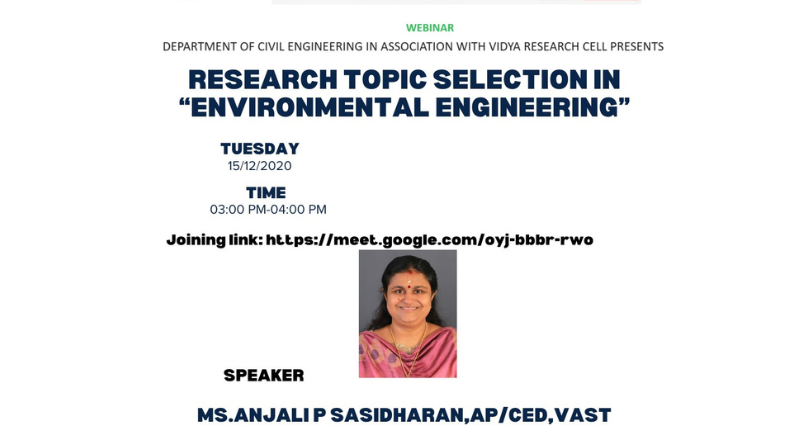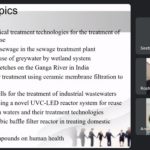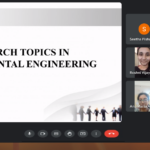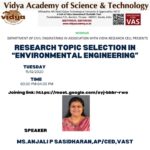Webinar on Research Topic Selection in Environmental Engineering
Webinar on Research topic selection in environmental engineering was conducted on 15/12/2020: Ms. Anjali P Sasidharan served as the resource person of the session. The program was conducted by Civil Department under VRC cell, VAST
The following research ideas were highlighted by the resource person.
One of the burgeoning research topics in environmental engineering revolves around the development and application of advanced water treatment technologies to address emerging contaminants. With the increasing presence of pharmaceuticals, personal care products, and industrial chemicals in water bodies, conventional treatment methods often fall short in effectively removing these compounds. Researchers are thus exploring innovative approaches such as advanced oxidation processes, membrane filtration, and nanotechnology-based treatments to achieve higher removal efficiencies and ensure the safety of water resources. Moreover, the integration of artificial intelligence and machine learning algorithms into water treatment systems is gaining traction, offering real-time monitoring and optimization capabilities for enhanced treatment performance and resource efficiency. Another significant area of research in environmental engineering is the advancement of sustainable waste management practices, particularly focusing on waste-to-energy technologies. Traditional waste disposal methods like landfilling pose significant environmental risks such as greenhouse gas emissions and groundwater contamination. As a result, there’s a growing emphasis on developing technologies for converting organic waste into renewable energy sources like biogas through anaerobic digestion or thermochemical processes such as pyrolysis and gasification. Additionally, researchers are exploring innovative approaches for valorizing non-recyclable waste streams into value-added products, thus promoting a circular economy paradigm and reducing reliance on finite resources. This research contributes to mitigating environmental pollution while simultaneously harnessing energy from waste streams, fostering a more sustainable approach to waste management.
Nearly 25 participants including faculty members and interested students of the final year batch also attended the programme.




